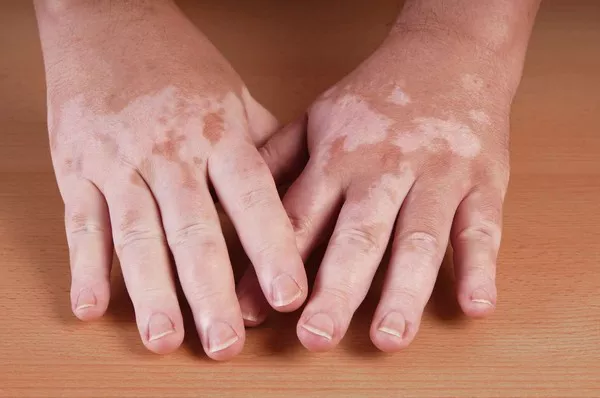Vitiligo is a skin condition characterized by the loss of pigment-producing cells (melanocytes), leading to the development of white patches on the skin. It affects individuals of all ages and ethnicities and can have a significant impact on both physical appearance and psychological well-being. While conventional treatments exist, such as topical corticosteroids and light therapy, interest has grown in natural remedies like ginger. This article explores the potential of ginger in treating vitiligo and examines the scientific evidence behind this claim.
Understanding Vitiligo
Before delving into the role of ginger, it’s crucial to understand the underlying mechanisms of vitiligo. The condition is believed to be autoimmune in nature, where the body’s immune system mistakenly attacks and destroys melanocytes. This leads to depigmentation of the skin and the formation of white patches, most commonly on sun-exposed areas like the face, hands, arms, and feet.
Ginger: A Natural Remedy with Therapeutic Potential
Ginger (Zingiber officinale) has been used traditionally for its medicinal properties, including anti-inflammatory and antioxidant effects. Its bioactive compounds, such as gingerol and shogaol, have garnered interest for their potential role in various health conditions, including skin disorders like vitiligo.
Anti-Inflammatory Properties of Ginger
Chronic inflammation is implicated in the progression of vitiligo. Ginger has been studied extensively for its anti-inflammatory effects. Gingerols, the primary bioactive compounds in ginger, have been shown to inhibit pro-inflammatory cytokines and enzymes, potentially modulating immune responses that contribute to autoimmune conditions like vitiligo.
Antioxidant Activity and Skin Health
Oxidative stress plays a crucial role in the pathogenesis of vitiligo. Antioxidants help neutralize free radicals and reduce oxidative damage. Ginger contains potent antioxidants that can scavenge free radicals and protect cells from oxidative stress. This antioxidant activity may support melanocyte function and potentially aid in repigmentation of depigmented skin.
Immunomodulatory Effects
Ginger compounds have also demonstrated immunomodulatory properties. By modulating immune responses, ginger may help regulate autoimmune processes involved in vitiligo. This modulation could potentially halt the destruction of melanocytes and promote repigmentation.
Research Studies on Ginger and Vitiligo
While ginger shows promise as a natural remedy for vitiligo, scientific evidence supporting its efficacy is limited and primarily based on preclinical studies and anecdotal reports. Clinical trials involving ginger specifically for vitiligo are scarce. However, several studies have investigated the effects of ginger and its components on relevant pathways implicated in vitiligo:
Animal Studies
Animal studies have shown that ginger extract can inhibit the progression of vitiligo-like skin depigmentation in mice. These studies suggest that ginger may exert protective effects on melanocytes and promote repigmentation through its antioxidant and anti-inflammatory actions .
Cell Culture Studies
In vitro studies using melanocyte cell lines have demonstrated that ginger extract can stimulate melanogenesis (the production of melanin) and protect melanocytes from oxidative stress-induced damage. These findings provide insights into the potential mechanisms underlying ginger’s effects on vitiligo .
Human Studies
Limited clinical studies have investigated the use of ginger in skin disorders, including vitiligo. However, more research is needed to establish its safety and efficacy in human subjects with vitiligo.
Practical Application and Considerations
While ginger holds promise as a natural adjunct therapy for vitiligo, it’s essential to approach its use cautiously:
1. Consult a Healthcare Professional: Always seek advice from a dermatologist or healthcare provider before using ginger or any natural remedy for vitiligo. They can provide personalized recommendations based on your specific condition and medical history.
2. Incorporate Ginger into a Balanced Diet: Ginger can be included in the diet as part of a healthy, balanced eating plan. Consuming ginger in moderate amounts may offer general health benefits, including potential support for skin health.
3. Complement Conventional Treatments: Ginger should not replace standard vitiligo treatments prescribed by healthcare professionals. It can be considered as a complementary therapy to conventional approaches.
Conclusion
In conclusion, while ginger exhibits anti-inflammatory, antioxidant, and immunomodulatory properties that may benefit individuals with vitiligo, more rigorous clinical research is necessary to validate its efficacy and safety. As of now, ginger can be viewed as a promising natural remedy with potential but not yet fully established benefits in the management of vitiligo. Patients are advised to consult with healthcare providers for comprehensive guidance on vitiligo treatment and incorporate ginger responsibly into their overall wellness routine.
Related Topics:
Is Vitamin C Serum Good for Vitiligo

























